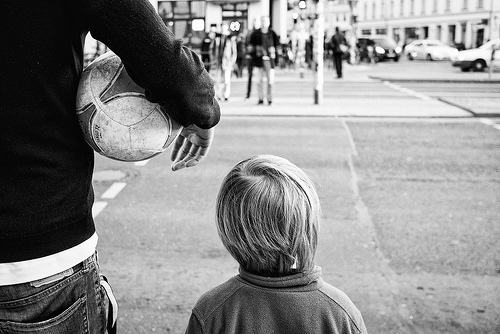How To Overcome Brain Injuries From Football

1 photo credit: ffela via photopin
The sound is sickening. I would daresay that almost everyone alive has heard it at one point or another in their lives.
The hollow thump, like hitting a ripe cantaloupe or other fruit.
It is the awful sound when your head hits the ground. In professional sports the impact risk is very real and very dangerous. Professional football (AKA Soccer) is not usually seen as a dangerous sport, but with the increase in popularity over the last decade, the number of injuries has risen as well.
In the United States sports injuries are tracked by the National Electronic Injury Surveillance System (NEISS). According to recent studies it is estimated there were over 150,000 reported injuries due to football. A small, but growing, percentage of these injuries were brain related injuries. This makes sense as one of the most effective means of moving the ball is by using your head. The player can literally head butt the ball. This has been suspect in many football related brain injuries.
In a recent emergency department study it was found that for children the sports most commonly associated with traumatic brain injuries were:
- Football (American) @ 29.1%
- Football (soccer) @ 16.5%
- Basketball @ 15.4%
For people under the age of 25, sports were the 2nd leading cause of traumatic brain injury behind only motor vehicle crashes.
The Effects of Traumatic Brain Injury (TBI)
Regardless of the sport that caused the injury, an impact to the head which causes a concussion or worse, TBI, can have far reaching and dramatic effects on your life.
One sports Phycologist, John Murray, used his doctoral dissertation to illustrate how a serious brain injury affects an athlete’s life. His patients ranged from high school students to professionals. One of the most pervasive effects were the athlete might experience depression, lack of self-worth, or severe dizziness.
Strategies for Healing
If you or someone you know has suffered a brain related sports injury, professional medical attention is always the first recommendation. Then it is important to deal with the psychological effects.
If the injury will prevent you from participating in the sport in the future, this reality can be particularly demoralizing. Picking up a different sport, one that poses little or less risk of repeated brain injury is one coping strategy. Golf, for instance, is incredibly competitive and demanding yet poses little risk of brain injury.
Psychologists also agree that finding a support group including athletes that have suffered similar injuries is a critical part of the healing process.
Often times, the injured athletes will attempt to hide their injuries to try to avoid the consequences of the injuries. This can be one of the worst things and athlete can do. It will not only prolong the healing process, but may possibly put the athlete right back into the game to be injured again.
Conclusion
More often than not, the more difficult decisions are also the correct decisions. A football related injury is not one to hide from or ignore as the possibilities for prolonged detrimental effects are great. If you have suffered a head related injury from any sport, it is critical that you honestly address the symptoms with your doctor and find the appropriate help.
Related Articles:

Comments are Disabled